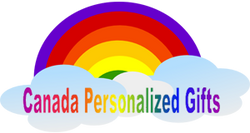
Flat-line learning or lifelong learning? The choice we ought to make is anything but apparent; we are too often guided by the subconscious, the involuntary in us— the linear, the path of least resistance. And we say: green light, let's go. The truth is that many of us have an innate tendency to overlook the importance of the continuum, especially when it comes to one's accumulated knowledge pool. The trajectory is, in a sense, linear as we move through our childhood years into university diploma adulthood. And we feel accomplished, well-rounded, and bulletproof. Then in comes work experience, and we harvest competencies, soft and hard skills. However well-equipped we might find ourselves to be, the "bigger picture" remains elusive. Unattainable. Here's a life hack: reading. Let's talk about why reading is a vital skill for lifelong learning.
The harvest begins at an early age
Reading is a rare, multidimensional tool for enhancing one's personal growth; the younger we are, the more encompassing the scope: a love that never dies—that kind of thing. A child's brain is nourished through literature in many subtle ways, the most important being cognitive development. Not only does the reading continuum stave off cognitive decline, but it also gifts readers with thought flexibility, openness to new concepts, and VIP access to puzzle-solving, detail-oriented, complex ideas. Additionally, reading grants us a wondrous thing—a home away from home. A delicate, intimate, idiosyncratic universe for each reader consumed with an undying urge for learning.
Curiosity: unlocked
We find curiosity to be a fairly infantile virtue, and that's a shame—a grandiose shame. Remember when you were a kid, and your parents would read a bedtime story aloud, and your pupils would widen in anticipation? What's next? What happened to the bunny? Suspense. Imagination sets your cognitive fields on fire, like a stampede of wild horses. Read more, please. And it is the same with us adults. You read a marvelous fiction piece about ancient Greece, and, voila, just like that, your synapses awaken, and you get that tingling feeling that finds its outlet in the form of an urge, “I have to visit. Let's look up some tickets online. I need to explore. Now!” Has it ever happened to you? Books can spark an everlasting trajectory to lifelong learning as it initiates an insatiable hunger.
Reading teaches us to ask questions, and form opinions, as it also encourages us to keep digging for the truth. Human beings are hardwired for curiosity—we need answers, and as innately cognitive explorers, we will stop at nothing.
The good skeptic
Reading is a vital skill for lifelong learning. Proof? It comes with a healthy dose of skepticism. Question everything, and leave no stone unturned. But can a pastime activity actually change one's core fundamentally? Absolutely. It teaches us to rethink, rephrase, and revisit beliefs and ideas our minds and hearts grew so fond of. To a reader, nothing is sacred—exactly how it should be. What do I believe is true about XYZ? Let's scrutinize the particles out of the premise. Instead of gifting nods to face value, reading teaches us to re-examine our facts or enrich our surface-level knowledge.
Our advice? If you're thinking about moving and hiring packing services in Toronto, don't even think about leaving your precious books behind; pros can pack up your collection. Think of it as a lifelong learning investment.
Reading invites reflection
The continuum of reading offers access to the ultimate: our ability to reflect and grasp deeper, intricate concepts. Connect the dots, ponder. The grand scheme of things—all in one. So, why are we so quick to say, "Thank you, pass!" to lifelong learning? It really boils down to our personal priorities. For most of us, the modern-day, spiraling, fast-paced environment is more than proficient in sidetracking us and hindering our self-growth trajectory—and with ease. As the collective stress levels rise, we turn to mediocre, passive entertainment so as to forget about the looming troubles of a modern-day individual. Stress, anxiety, and depression are upon us, breathing down our necks and watching our every move. We are antelopes and the machine we call "living”—a preying cheetah. We are more than glad to pigeonhole our capacity for knowledge and embrace anything that requires minimum energy input.
Entertain me; don't get me involved. I don't have time to develop a fundamental understanding of things surrounding me. I'm simply too busy. Without reflection, our ability to scrutinize, investigate and discover, we are, indeed, condemned to live an unfulfilling life. The saddest of all: simply mediocre. No matter how seemingly small and insignificant the daily learning, it accumulates over time, making lifelong learning a superior ally as we tread our earthly years.
Tear down the wall
Human beings are knowledge vessels: values, information, and facts. However, as humans, we are inherently flawed, as our nature pivots around practicing biases—and it's nobody's fault, really. We are hardwired to accept and blindly follow familial or societal guidance. There are things we hardly ever question but are more than eager to share with others—from preaching religion to embracing neighbourhood culture. Our background directly dictates the stealthily integrated stereotypes we wholeheartedly embrace and take pride in. Why? Because we all have the need to belong. All the same, reading acts as a crystallizer, a mirror; it's the finest existing form of cognitive alchemy. It gifts us the opportunity to recognize and identify our own biases and adopted stereotypes, and it emphasizes all generalization-affected areas. And the mending can begin. If you have children, lead by example; pass on your undying love for quality literature.
Finally
Reading is a vital skill for lifelong learning because it prompts us to constantly strive for self-improvement. It teaches us humility. With each book comes a lesson; learning to be open to other people's perspectives, pains, and growth involuntarily invites mindfulness into our existence. With each page turned, we are that much closer to (re) discovering the self. It sounds like a plan.

